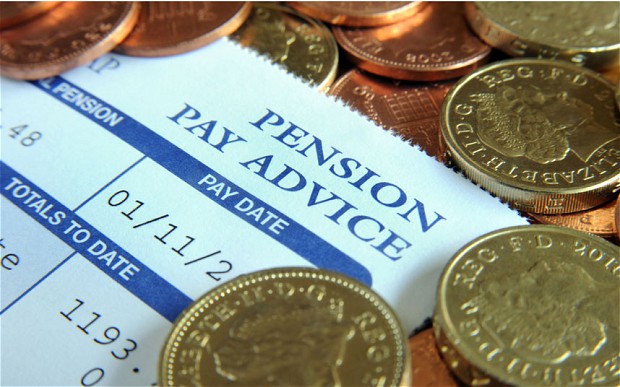An influential think tank warns some workers currently need to save six times more than they do to avoid poverty in old age.

People should be forced to put money into a pension in the same way that they have to pay taxes, according to an influential think tank.
A new report by the Policy Exchange says the government’s auto-enrolment pension programme doesn’t go far enough amid warnings that some people need to save six times more than they do to avoid poverty in old age.
It adds that a “help to save” scheme should be set up, which would remove people’s ability to opt out of workplace pensions, and call for contributions to rise to 12% of salary, from 8% now.
The paper said that these measures would help to defuse a “pensions time bomb”.
The Government’s recommended retirement income is £16,200 per year and to achieve that you would need a pension pot of £240,000.
But the average person will only have £1,340 per year in retirement income because their pension pot is only worth £36,800.
For example, a person earning £27,000 would need to save six times as much as they do now to achieve the full amount according to the report.
James Barty, author of the Police Exchange report, said: “People are not saving enough for their retirement. This is putting an intolerable burden on the state which needs to be addressed sooner rather than later.”
In a bid to boost the nation’s retirement savings, a programme of automatic enrolment into pensions was launched by the Government in 2012.
To date, a lower-than-expected rate of one in 10 employees are opting out once they have been placed into a pension scheme, but Policy Exchange said this level may rise as medium-sized companies join up in 2014, followed by smaller businesses.
By 2018, more than nine million workers in Britain will be members.
The current auto-enrolment system of an 8% rate is made up of 4% personal contributions, 3% company contributions and 1% from the Government in the form of a tax credit.
The think tank suggests the rate should instead comprise of 6% from employees, 4.5% from companies and 1.5% from government.
Ali Steed, personal finance expert and owner of mymoneydiva.com said saving from an early age is important preparation for retirement, but enforced saving could be too restrictive.
She said: “To make it compulsory, it seems like a perfect solution if everyone was completely flush, but they are not.
“To have all your money tied up, in a scheme that you can’t access for the next 40 to 50 years, it’s just not appealing to people.”










